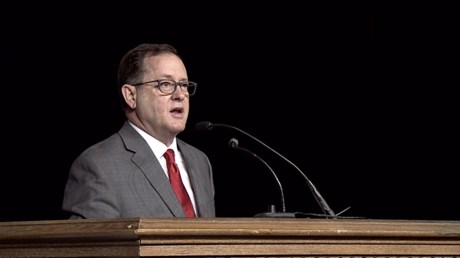Evangelicals in favor of traditional marriage debate the place of LGBT identity in the church.

Faced with more proposals addressing LGBT issues than any other topic, the Presbyterian Church in America (PCA) last night approved measures to affirm the Nashville Statement and launch its own study committee on sexuality.
The voting extended past midnight as pastors debated how their denomination could best clarify its positions, provide clergy helpful resources, and offer pastoral care for those raising questions around LGBT issues and same-sex attraction.
The decisions at this year’s PCA general assembly in Dallas follow months of controversy surrounding Presbyterian leaders’ involvement in Revoice, a conference featuring the voices of same-sex attracted Christians who affirm traditional beliefs around marriage and sexuality. The inaugural conference was hosted at a PCA church in St. Louis last July. Its second gathering was held earlier this month at another venue.
The Nashville Statement, a 14-point document released by the complementarian Council of Biblical Manhood and Womanhood in 2017, conflicts in part with Revoice’s approach, particularly article 7, which denies that “adopting a homosexual or transgender self-conception is consistent with God’s holy purposes in creation and redemption.” Some participants continue to self-identify as gay or same-sex attracted.
“Most of the Christians I know who describe themselves as ‘gay’ use the word in a similar way that Paul did when he called himself a sinner. They use the word not as a banner or as an identity, but as an honest recognition of their broken state as those affected by original sin,” wrote Christ Presbyterian pastor Scott Sauls, in a 4,700-word blog post urging his denomination against “unnecessary ...
from Christianity Today Magazine https://ift.tt/2YkrtiK




